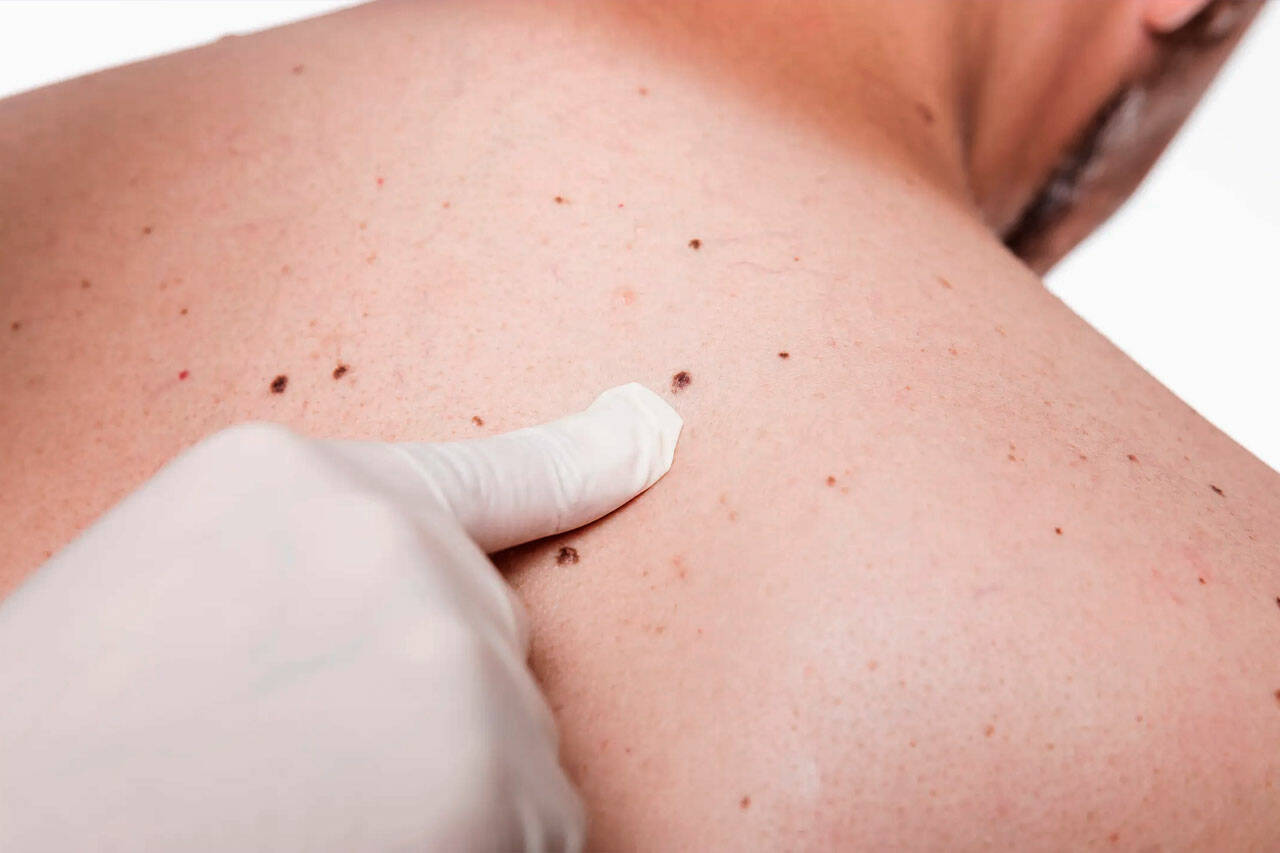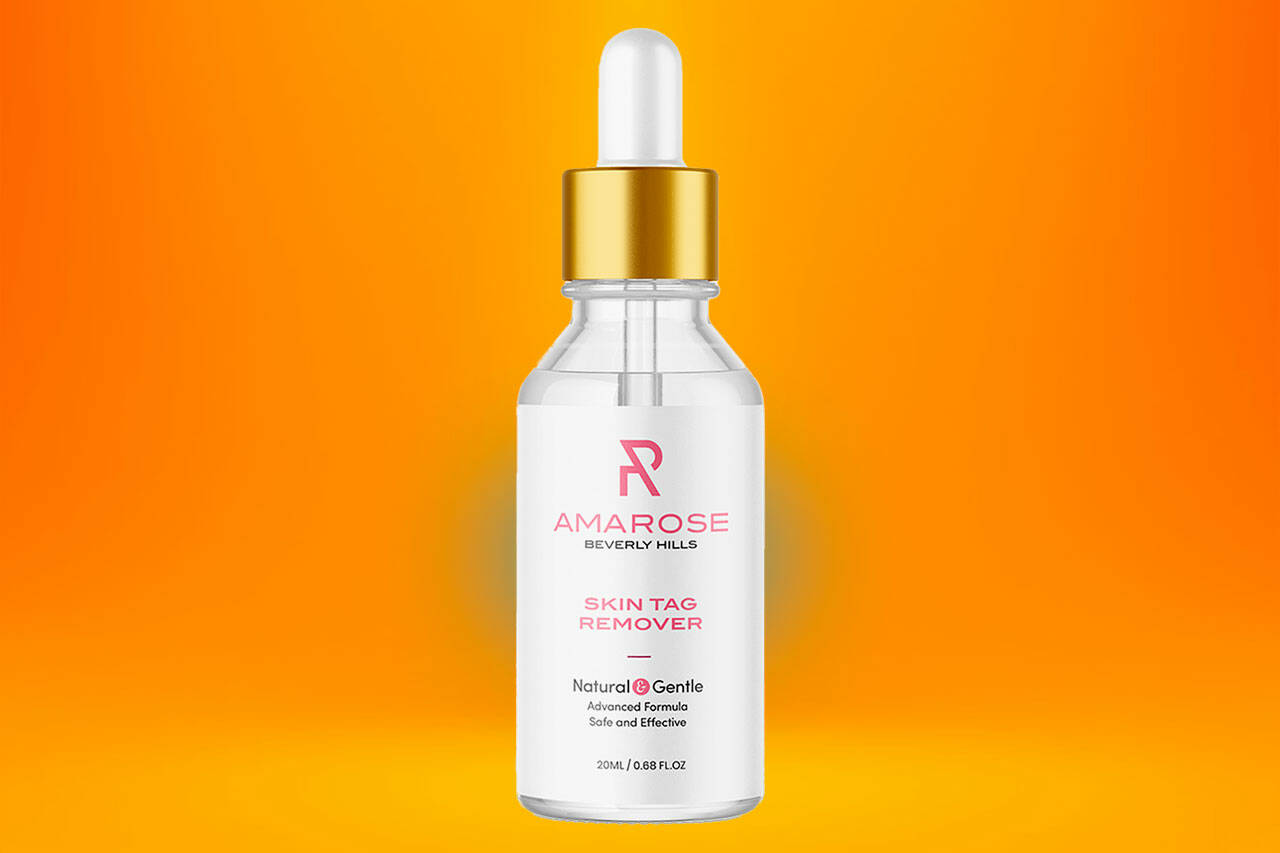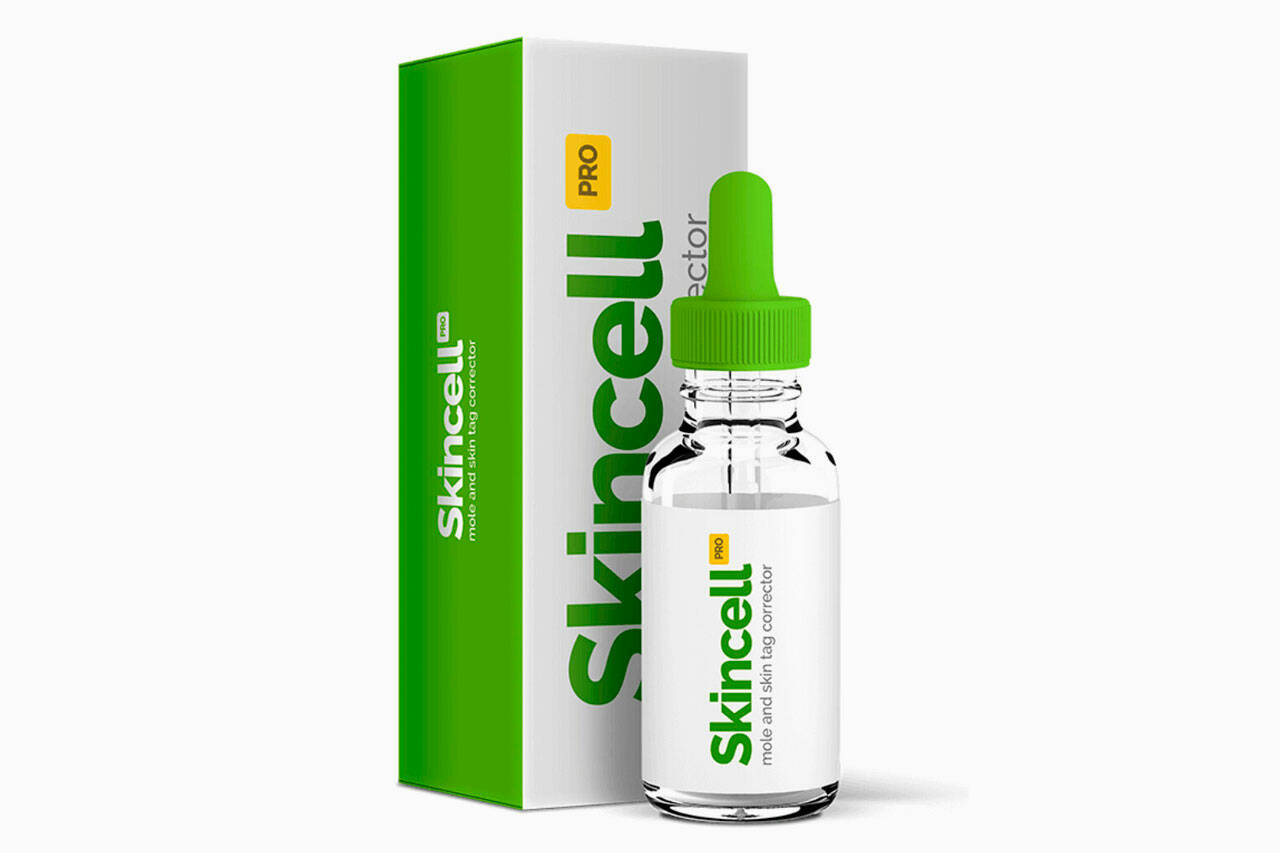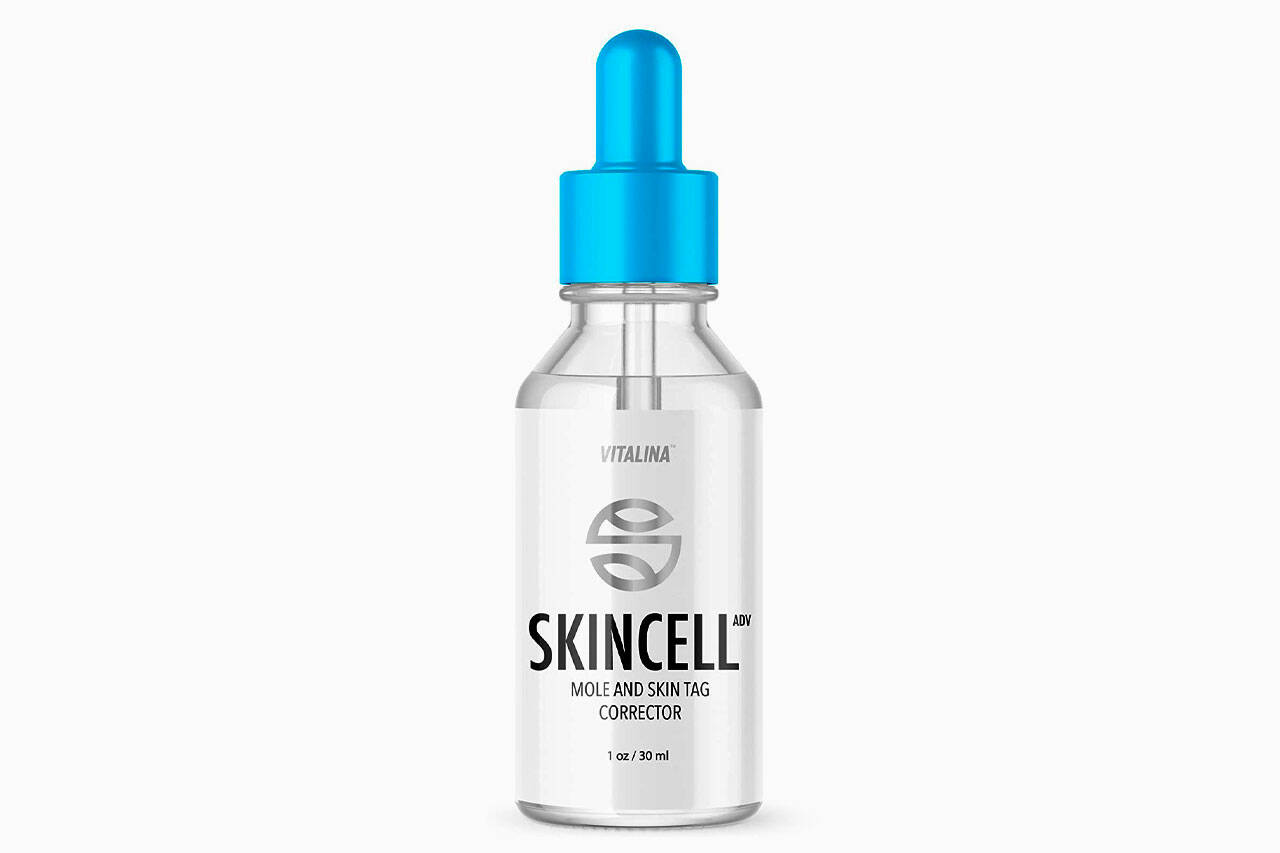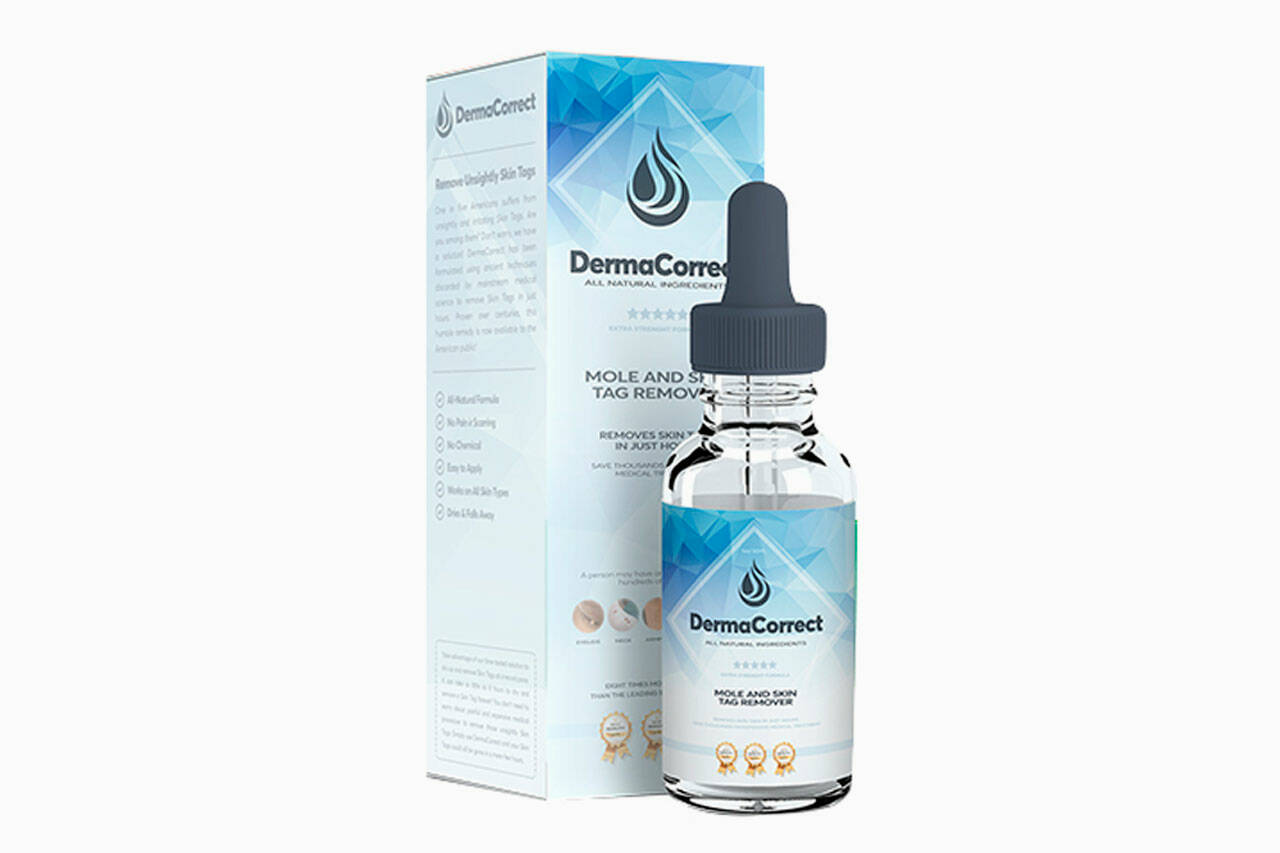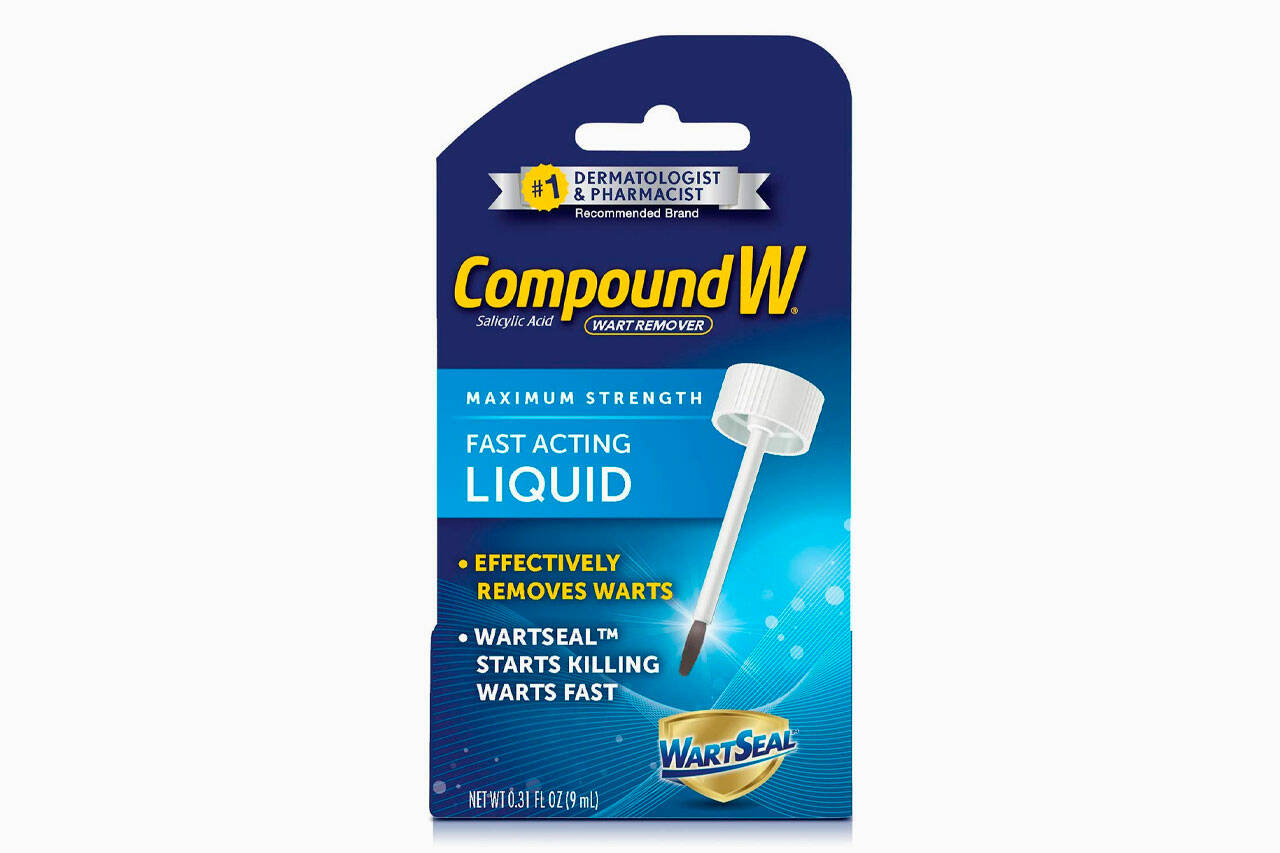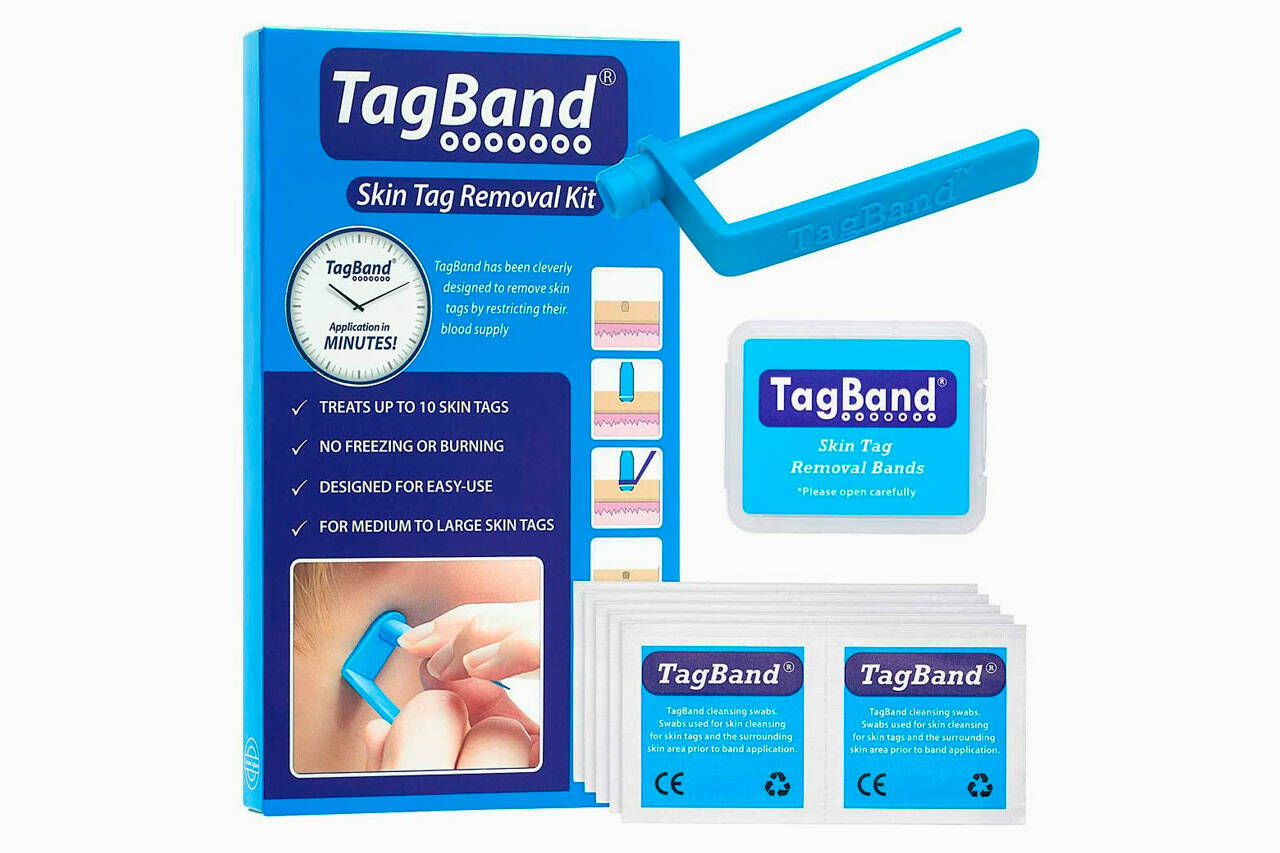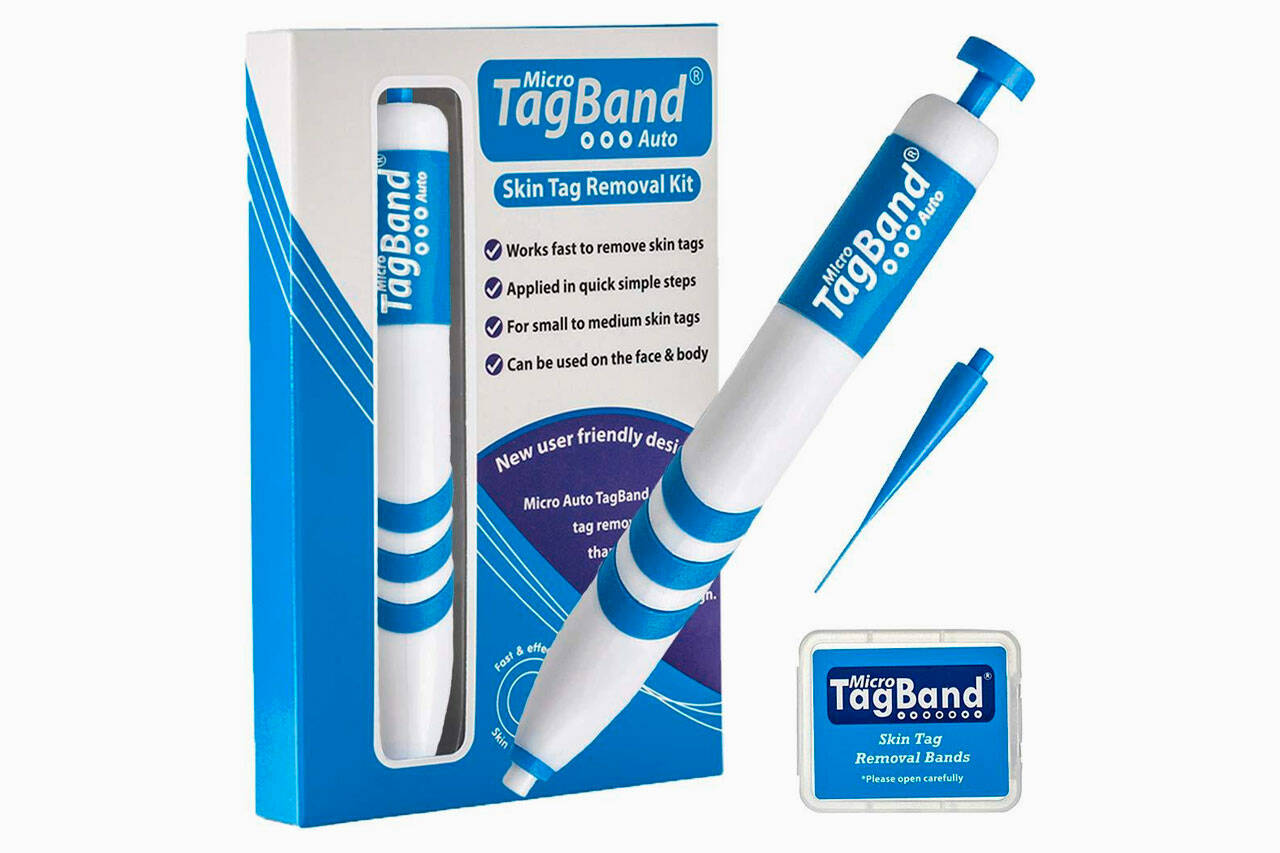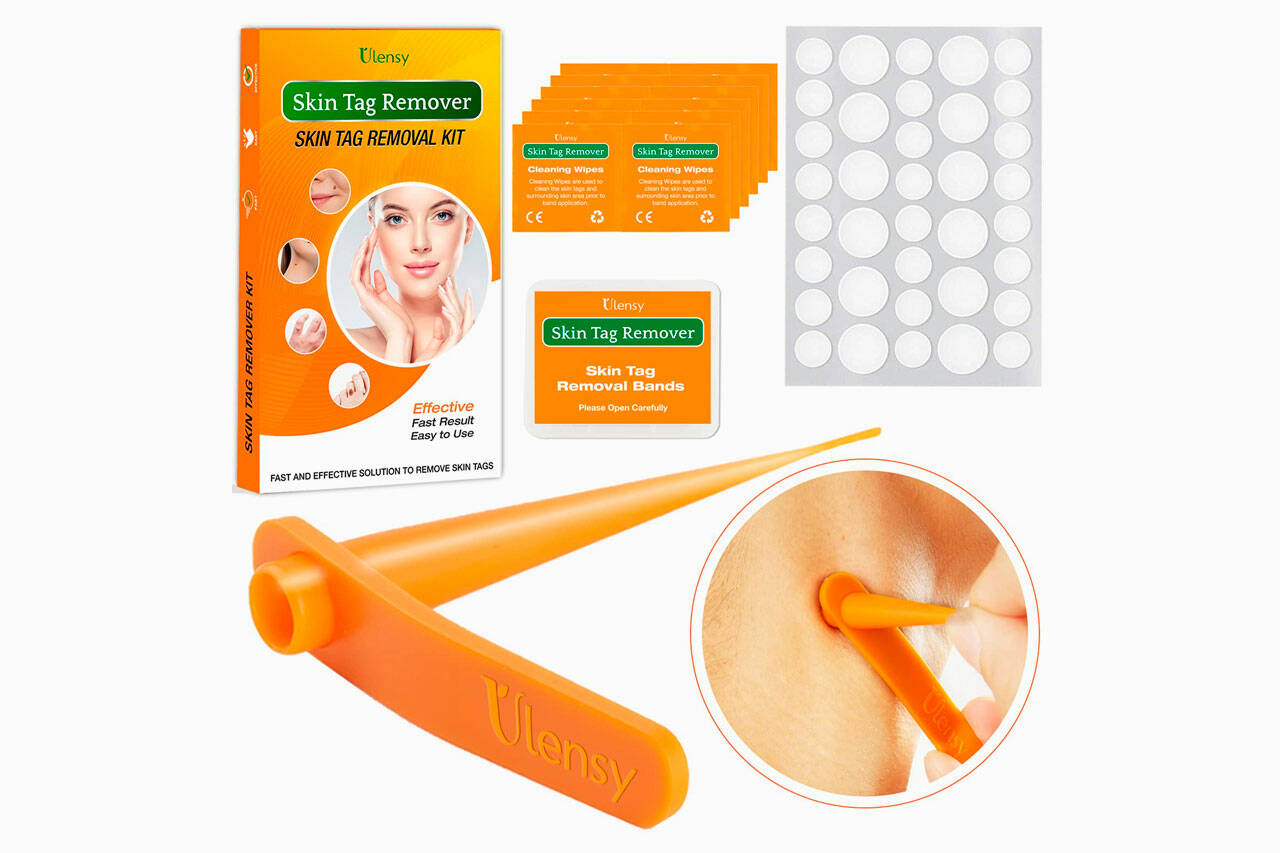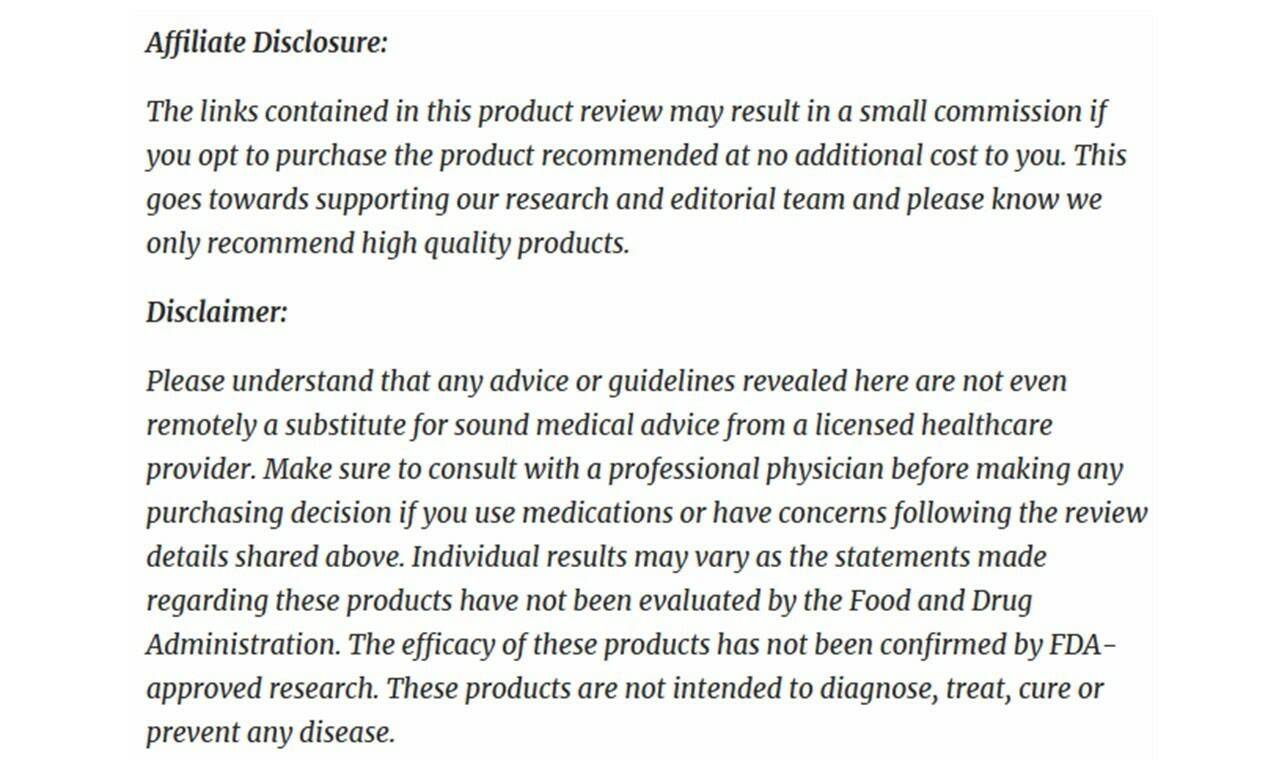Skin tags and moles are common skin conditions. They can also be annoying. Sometimes, they can even be dangerous.
We don’t know the cause of all skin tags. However, some develop skin tags because of friction – say, if your necklace or seat belt rubs against a specific part of your body.
Most skin tags are harmless. They’re simply collections of loose collagen fibers formed in a fold of your skin.
Most moles are also harmless, although some moles need to be checked by a dermatologist to verify they’re not cancerous.
Fortunately, it’s easy to remove skin tags and moles at home.
Today, there are plenty of skin tag and mole removal systems and products you can use at home to safely, quickly, and discreetly remove skin tags. You can also use natural remedies to remove skin tags.
What are the best skin tag and mole removers? We answered that question by analyzing the top products available today. Here are our rankings.
Ranking the Best Skin Tag Mole Removers in 2022
All skin tag and mole removal systems claim to efficiently remove skin tags and moles. However, only the best products are proven to work.
Our editorial team analyzed lab reports, contacted manufacturers, consulted with dermatologists, and personally tested products whoever possible to compile the rankings below:
- Amarose Skin Tag Remover
- Skincell Pro
- Skincell Advanced
- Derma Correct
- CompoundW
- TagBand
- Micro TagBand
- Ulensy Skin Tag Remover
Amarose Skin Tag Remover
Amarose Skin Tag Remover is the number one skin tag and mole remover product available right now. Due to its outstanding customer results and user feedback found on the official Amarose Skin Tag Remover website, this advanced formula is completely safe and potent for being a very natural and gentle topical solution that helps remove those pesky moles and skin tags. The Beverly Hills Amarose Mole & Skin Tag Corrector Serum goes to work fast and provides a simple solution that can be applied at home and can be effective for skin tags, dark moles, light moles, small warts and big warts.
This blemish-free Skin Tag Remover from Amarose utilizes top quality ingredients such as Sanguinaria Canadensis and Zincum Muriaticum. The product is very easy to use, has no smell and is clear in color. The liquid Amarose Skin Tag Mole Remover serum applies smoothly and provides optimal results for customers of all types and needs.
Skincell Pro
Skincell Pro is a skin tag removal system that uses a revolutionary, all-natural formula to eliminate skin tags and moles anywhere on your body.
According to the manufacturer, Skincell Pro could work faster than virtually any other skin tag removal system on our list, clearing blemishes within as little as 8 hours.
To achieve these benefits, Skincell Pro’s topical formula contains zincum muriaticum (a natural antiseptic and disinfectant) and sanguinaria canadensis (also known as bloodroot). These ingredients work over a four-stage process to remove the skin tag from your body and prevent scarring after removal.
Skincell Advanced
Skincell Advanced is a mole and skin tag removal system that comes in the form of a highly-concentrated serum. You apply the serum to your skin tag using the included brush. The skin tag remover has salicylic acid to loosen and break apart imperfections, targeting skin tags, moles, and warts.
By applying two coats of Skincell Advanced to your skin tag daily, you can remove the skin tag easily. Allow the solution to dry between coats, and repeat the procedure daily for up to 12 weeks to complete the removal process.
Skincell Advanced contains a proprietary blend of tea tree and castor oils. These oils have traditionally been used as cleansers and purifiers. By applying them to your skin tag or mole daily, you can safely and quickly remove the unwanted blemish.
Derma Correct
Derma Correct is a skin tag remover serum that comes in a glass jar with a dropper. You use the dropper to apply the serum to your skin tag daily. According to the manufacturer, it works in just a few days to safely remove skin tags from anywhere on your body.
Derma Correct uses unique ingredients like aloe vera, bloodroot, and other essential oils and fruit extracts. Some of these ingredients work because they’re rich with antioxidants (like vitamin C). Other ingredients work because they’re filled with antioxidants and other components.
Derma Correct also has an ingredient we don’t see in other skin tag removal systems: turmeric. Turmeric is rich with curcumin, a natural anti-inflammatory that could support healthy inflammation. It can help reduce scarring after removing your skin tag.
CompoundW
CompoundW is the best-known skin tag and mole removal system available online and in stores today. Recommended by dermatologists for its proven results, CompoundW is an effective way to remove minor skin tags and moles at home.
CompoundW works using a simple two step system: you isolate the skin tag using the small, plastic device included in the kit. Then, you use the foam tip applicator to freeze the skin tag instantly. We like CompoundW because you can remove the skin tag without harming the surrounding skin. The “TagTarget” makes it easy to focus on the skin tag and mole.
Priced at around $34 for a home removal kit with 8 applications, CompoundW can help you quickly, easily, and cheaply remove a skin tag at home without needing to visit a doctor or dermatologist.
TagBand
TagBand is a skin tag remover device designed for medium and large skin tags. While other DIY skin tag removal kits on this list are designed for smaller skin tags, TagBand is specifically designed for medium and large skin tags.
Priced at $23, the TagBand kit can remove skin tags that are 4mm to 6mm at their widest point. You apply the kit in four easy steps with no freezing or burning required. You can use TagBand on all areas of the face and body (excluding the sensitive area around your eyes).
Each TagBand kit includes one TagBand removal tool, 10x removal bands, 10x cleansing wipes, and an instruction manual. You can treat up to 10 skin tags within minutes at home, using a proven system to eliminate unwanted skin tags from your body.
Micro TagBand
Micro TagBand is the original ligation skin tag removal kit. TagBand uses the ligation method to restrict blood flow to your skin tag, allowing it to quickly fall off.
Like other skin tag removal kits, TagBand features small, rubber bands to reduce blood flow to the skin tag. This blood flow is vital for the growth and survival of the skin tag. By restricting blood flow, you naturally and safely kill the skin tag, allowing you to resume living a normal life.
Each Micro TagBand kit can treat up to 10 skin tags. Each kit includes one TagBand removal device, 10 x micro removal bands, and 10 x cleansing wipes. The kit is designed to target small and medium-sized skin tags (2mm to 4mm at their widest point). However, you can use the original TagBand kit for larger skin tags.
Ulensy Skin Tag Remover
The Ulensy Skin Tag Remover is a skin tag removal kit with 36 pieces, making it the largest kit on our list. Each kit comes with everything you need to quickly and safely remove skin tags, including 36 skin repair patches, 12 cleansing wipes, 24 standard bands, and 1 instruction manual.
Ulensy recommends using their Skin Tag Remover kit on small to large (4mm to 8mm) skin tags. When using the kit correctly, you can safely remove skin tags without leaving permanent scars or irritations.
Just follow the 6 easy steps in the Ulensy Skin Tag Remover instruction manual. You can remove skin tags from the comfort of your own home – all without a painful or expensive visit to the dermatologist.
How We Ranked
Every skin tag and mole removal system claims to eliminate skin tags safely. Unfortunately, most of them don’t work.
To separate the best and worst skin tag removal kits and create the rankings above, we used the following factors:
Moneyback or Satisfaction Guarantee: All good skin tag manufacturers stand behind their products with a moneyback or satisfaction guarantee. Even the best skin tag removal kits don’t work for everyone. If your skin tag removal kit doesn’t remove your skin tag, then you should be able to obtain a refund. We preferred skin tag removal kits that had a strong moneyback or satisfaction guarantee.
Proven Ingredients or Methods: Some skin tag removal kits use freezing solutions, tea tree oil, salicylic acid, and other proven ingredients to eliminate skin tags. Others use homeopathic remedies or unproven ingredients like apple cider vinegar. We preferred skin tag removal kits that used proven ingredients or methods.
Safety: Some skin tag removal kits come with safety features – like a protective case to focus on the skin tag without damaging the surrounding skin. We preferred skin tags that emphasized safety.
Ease of Use: Some skin tag removal kits are easy to apply in seconds. Just tap the brush against your skin to quickly and easily remove the skin tag. Other skin tag removal kits take minutes to apply and come with complicated instructions. We personally tested each skin tag removal kit wherever possible, and we preferred kits that were easy to use.
Dermatologist Approved or Recommended: Most dermatologists do not recommend using skin tag removal kits. When used incorrectly, they can be dangerous. That’s why we particularly appreciate skin tag removal kits that are recommended or endorsed by dermatologists. Some of the top-ranked skin tag removal kits on our list have been approved, certified, and endorsed by dermatologists.
Price, Value, and Overall Cost: Some skin tag removal kits seem affordable, but you need to buy 3 or 4 kits to remove an average skin tag. Other skin tag removal kits offer good value, allowing you to cheaply remove a skin tag at a fraction of the price you would pay at the dermatologist.
What is a Skin Tag?
A skin tag is a piece of skin consisting of collagen fibers. Collagen is the most abundant protein in the body, and it’s the protein that forms your skin. When strands of collagen lump together at folds of your skin, it can crease a skin tag.
Skin tags are generally harmless. However, some find them annoying. Others find them unsightly.
If you have a skin tag that you want to remove, then you can buy a skin tag or mole removal kit for use at home. Alternatively, you can visit a dermatologist or other doctor to remove the skin tag.
What Causes Skin Tags?
We don’t know the cause of all skin tags. However, we do know certain risk factors associated with skin tags.
Obesity is the biggest risk factor for developing skin tags. People who are overweight or obese tend to have a much higher chance of developing skin tags.
In one 2010 study, for example, researchers found that people with type 2 diabetes and pre-diabetes were more likely to develop skin tags. When you have diabetes or pre-diabetes, your body doesn’t absorb glucose from your bloodstream as effectively. This can increase the risk of developing skin tags.
Another study from 2008 found a connection between human papillomavirus (HPV) and skin tags. Researchers collected skin tag samples from across the body. Approximately 50% of tested skin tags contained HPV DNA.
Many people develop skin tags when pregnant. The combination of pregnancy hormones and weight gain appears to increase the risk of developing skin tags.
In others, skin tags can be a sign of hormone imbalance or an endocrine problem.
Overall, we need more research to determine the cause of all skin tags. However, we know certain risk factors that appear to increase the chance of developing a skin tag.
How to Remove Skin Tags
You can remove skin tags at home by following the instructions included with your skin tag or mole removal product. Alternatively, you can visit a doctor or dermatologist for professional skin tag removal.
Some of the ways to remove skin tags include:
DIY Home Removal Kits: Skin tag and mole removal kits can make it safe and easy to remove unwanted skin tags at home.
Cryotherapy: Dermatologists may use cryotherapy (liquid nitrogen spray) to freeze away a skin tag.
Surgical Removal: Doctors may surgically remove the skin tag, cutting the skin tag away from your body. This is also known as cutting.
Topical Treatment: Doctors may apply a topical anesthetic numbing cream into the skin tag before removal to minimize discomfort and avoid post-removal scarring.
Burning: Some dermatologists burn away a skin tag. They run an electric current through a wire. The wire becomes hot enough to burn the upper layers of skin. This is more common for larger skin tags, although it may require multiple treatments.
Laser Treatment: Laser treatment has become more common in recent years for a variety of skin issues. However, laser treatment is not commonly used for skin tags and moles. Lasers can increase the risk of pain and scarring, and they’re a more invasive method than freezing, cutting, or shaving off a mole or skin tag.
How to Identify Dangerous Moles and Skin Tags
To identify dangerous moles and skin tags, remember the ABCDEs:
Asymmetry: Skin tags can be symmetrical or asymmetrical. However, if one half of your mole does not match the other, then it could be a sign of skin cancer.
Border: If the borders of your mole are ragged, blurred, jagged, or irregular, then you should have it checked by a doctor.
Color: Most moles have a solid color throughout. If your mole has multiple colors or different shades throughout like black, blue, red, white, or brown at different parts of the mole), then you should get it checked.
Diameter: If your mole is larger than the diameter of the eraser of a pencil, then you should get it checked.
Elevation and Evolution: If your mole has become elevated or raised after previously being flat, or if it evolves or changes over a short period of time, then it could be a sign of skin cancer.
How DIY Skin Tag and Mole Removal Kits Work
Skin tag and mole removal kits work in different ways. Some kits freeze away skin tags and moles. Others use topical ointments to soothe the area. Some skin tag removal systems involve bands or patches.
Skin Tag Removal Creams
Skin tag removal creams contain salicylic acid, tea tree oil, and similar ingredients – similar to acne-fighting medication. Some dermatologists claim these systems are an effective way to remove skin tags. Other dermatologists recommend avoiding this removal creams because they can irritate the skin. However, when you choose the right skin tag removal cream, the skin tag could fall off in 2-3 weeks.
Freezing Kits
Home skin tag freezing kits come with a spray. You spray the skin tag directly while avoiding contact with surrounding skin. Some recommend applying petroleum jelly to the area to help protect the skin. When done correctly, a freezing kit could freeze and kill the skin tag, allowing it to fall away within 2 to 3 weeks. Some freezing kits require multiple applications to work effectively.
Natural Ointments and Solutions
Some skin tag removal systems involve tea tree oil, apple cider vinegar, iodine, or other natural ingredients. Natural ointments and solutions include:
Tea Tree Oil: Tea tree oil can help treat several skin conditions. For removing skin tags, apply the tea tree oil to a cotton ball, then attach the tea tree oil to the skin tag. Do this multiple times per day. Tea tree oil can irritate sensitive skin, but it can also cause your skin tag to fall away.
Apple Cider Vinegar: Apple cider vinegar is a popular traditional treatment for skin tags. There’s limited evidence proving apple cider vinegar works for home skin tag removal. However, you use it similar to tea tree oil: add apple cider vinegar to a cotton ball, then apply it to your skin tag daily.
Iodine: Some use iodine solutions to remove skin tags at home. Add iodine to a cotton ball, using petroleum jelly or coconut jelly to protect the surrounding skin.
Cutting
Some people cut away skin tags at home using scissors, nail clippers, a needle, or a sharp blade. Generally, you should not cut or clip a skin tag without the supervision of a medical professional. Although you may be able to remove the skin tag on your own, you could increase the risk of permanent scarring in the area. Alternatively, you might not be able to safely remove the entire skin tag, leaving parts of the skin tag behind.
Note: Avoid using DIY home skin tag removal kits if the skin tag is located around your eyes or genitals. You should also stop using the skin tag removal kit if it’s causing pain, bleeding, or itching. Do not use DIY skin tag removal kits on skin tags that are very large or long.
Best Ingredients for Removing Skin Tags: Home Remedies, Solutions, and More
You can remove skin tags at home using natural ingredients. In fact, some people safely remove skin tags and moles without ever visiting a dermatologist.
Skin tags are more common than ever. However, people have been treating skin tags for centuries. Before modern medicine and dermatology, people used natural ingredients like tea tree oil to remove skin tags.
Research shows that tea tree oil has natural antiviral and antifungal properties, making it safe to use on the skin. Wash the affected area, then massage the oil over your skin tag. Wrap a bandage around the skin tag overnight to allow the tea tree oil to soak in. By repeating this treatment for several nights, you may be able to quickly and safely remove the skin tag.
Others use banana peels to remove skin tags and moles. Although there’s limited scientific evidence backing this phenomenon, some claim that banana peels help dry out skin tags. Leave a banana peel over the skin tag, then cover it with a bandage. Repeat nightly until the skin tag falls off.
Vitamin E and vitamin C are two of the most popular antioxidants in the natural world. Both common vitamins can be found in foods – particularly fruits. Some people apply vitamin E-based formulas directly to their skin to help with skin tags, aging, wrinkles, and general inflammation.
Garlic may be one of the best ways to get rid of a skin tag or target skin inflammation. Garlic has natural antioxidant and anti-inflammatory properties. If using garlic has a home remedy for skin tags, apply crushed garlic over the skin tag, then cover the area with a bandage overnight.
Some of the top-ranked skin tag and mole removal kits above use these ingredients and others to safely eradicate skin tags and moles from your body.
Aftercare Removal: How to Avoid Scarring and Damage
After removing a skin tag, you must take certain steps to limit scarring and damage.
The best type of aftercare treatment is to wash the area with soap and water regularly.
If you experience chafing in the area where you removed the skin tag, then cover the area with a bandage to prevent the development of another skin tag in the area.
If you don’t care for your skin properly after skin tag removal, then you could develop an infection or complication. Some people develop noticeable scars after removal – especially if using an unproven skin tag removal kit at home.
If a doctor or dermatologist removed your skin tag, then you’ll receive specific instructions on treating your skin tag.
By following basic hygiene procedures, you can limit scarring and other unwanted after effects after your skin tag has been removed.
How to Prevent Future Skin Tags
If you just removed a skin tag, then you may develop more skin tags in the future. Skin tags are linked to obesity, chafing, and certain medical conditions. They can also be caused by unknown phenomena.
To prevent future skin tags, follow the tips below:
- Check your skin once a month for skin growth and other changes
- Look for changes in the color and feel of your skin
- Check the front and back of your body carefully using a mirror; your back is the most common place for moles to form
- Bend your elbows to examine your forearms, the backs of your upper arms, and your palms
- Check your toes, the soles of your feet, and the spaces between your toes
- Check the backs of your legs, your butt, your genitals, and other parts of your body using a mirror
- Look for changes in current skin growth, like a mole that starts to bleed, get larger, or change color
- Clean skin tag prone areas of your body (like your neck, groin, and folds of your skin) using soap and water twice a day, focusing specifically on the area where you removed your skin tag
By following these tips, you can prevent future skin tags – or at least know instantly when these skin tags form.
FAQs About Skin Tags
Millions of people have skin tags. They’re a common problem – so it makes sense that we get plenty of questions about skin tags, moles, and how to remove them.
Here are some of the answers to our most frequently asked questions.
Q: What is a skin tag?
A: A skin tag is a small lump of fleshy brown, tan, or pink skin. Some skin tags are raised areas of the skin. Others hang from a small stalk.
Q: Where should I watch for skin tags?
A: Skin tags can develop on your eyelids, neck, armpit, and groin.
Q: Are skin tags the same as moles?
A: Skin tags are not the same as moles.
Q: Can skin tags become cancerous?
A: Skin tags do not usually turn into cancer. In rare cases, you may develop skin cancer on a skin tag.
Q: Do I need to remove a skin tag?
A: Skin tags are harmless, but if you find the skin tag annoying, then you can remove it.
Q: How do I remove a skin tag?
A: You can visit a dermatologist to remove a skin tag. Or, you can remove it at home using a skin tag or mole removal system.
Q: How do I identify a skin tag?
A: The best way to identify a skin tag is to look for the peduncle., which is the small stalk connecting the skin tag to your body. Moles and other skin growths do not have a peduncle. However, not all skin tags have a peduncle.
Q: How big is a skin tag?
A: Most skin tags are small and approximately 2mm in size. However, some skin tags can grow to be several centimeters across. Some skin tags are symmetrical, while others are not.
Q: What do skin tags feel like?
A: Some skin tags are wrinkly and rough. Others are smooth and soft.
Q: Do necklaces cause skin tags?
A: Necklaces could cause skin tags. Frequent irritation of a specific area appears to increase the risk of skin tags. This is particularly common in people who are overweight.
Q: What causes skin tags?
A: We don’t fully know what causes all skin tags. However, frequent irritation or rubbing of an area seems to increase the risk of developing a skin tag. A shirt collar, necklace, or anything else rubbing on your body could cause a skin tag. Being overweight or obese also seems to increase the risk of skin tags. However, skin tags can develop on anyone for any reason.
Q: Are skin tags hereditary?
A: Skin tags do not appear to be hereditary. Many people with skin tags have a family history of developing skin tags. However, this connection seems linked to medical conditions like diabetes or obesity – not specific genetic factors linked to skin tags.
Q: Are skin tags a natural part of aging?
A: The risk of skin tags appears to increase as you get older. Approximately 60% of people over age 70 have skin tags.
Q: Where do most skin tags occur?
A: Skin tags are typically found in folds of your skin, like on your neck, eyelids, groin, or other parts of your body where skin folds over itself. They can also be found on the trunk, abdomen, and bank.
Q: Are skin tags preventable?
A: Some skin tags are preventable. Losing weight and decreasing friction to an area, for example, appears to decrease the risk of developing a skin tag.
Q: How do dermatologists treat skin tags?
A: Dermatologists treat skin tags with a minor surgical procedure. The dermatologist cuts off the skin tag in a few seconds.
Q: Can I remove skin tags myself?
A: You can remove skin tags yourself at home using skin tag and mole removal kits. However, you should talk to a doctor (like a dermatologist) before removing skin tags. Removing large skin tags yourself could increase the risk of scarring, bleeding, and infection.
Q: Do skin tags grow back?
A: Skin tags do not typically grow back once they have been completely removed. However, if you did not completely remove the skin tag, then it’s possible for the skin tag to grow back.
Q: Do skin tags fall off on their own?
A: Over time, some skin tags fall off on their own.
Q: Do skin tags hurt?
A: No, most skin tags do not hurt. However, skin tags could become inflamed or irritated.
Q: Do I need to monitor skin tags like a mole?
A: Skin tags and moles can look similar. However, it’s rare for skin cancer to develop within a skin tag. Nevertheless, you should check any abnormal areas of your skin regularly with a doctor or dermatologist.
Q: Should my skin tag be bleeding?
A: A skin tag may start bleeding because of friction and irritation (say, if you’ve been scratching at it or if it’s been rubbing against a piece of clothing). However, skin tags should not bleed on their own.
Q: Are overweight people more likely to develop skin tags?
A: Yes, overweight people are more likely to develop skin tags.
Q: Do skin tag scars disappear?
A: If your skin tag caused a scar or scab, then that scar should disappear. However, if it was a large skin tag, or if you removed the skin tag improperly at home, then your skin tag scar may last a long time.
Q: Do banana peels help with skin tags?
A: Although many people use banana peels for warts, skin tags, and other skin issues, there’s no evidence proving banana peels help with skin tags.
Q: Does tea tree oil help with skin tags?
A: Although many people use tea tree oil as a topical treatment for skin tags, there’s no evidence proving tea tree oil helps to remove or reduce skin tags.
Q: What are the best skin tag and mole removers?
A: Any of the top-ranked products on our list are among the best skin tag and mole removers available today, including Skincell Pro, Skincell Advanced, Derma Correct, and CompoundW.
Q: Does diet affect skin tags?
A: Diet does not appear to increase or reduce the risk of skin tags. However, people who are overweight have a higher risk of developing skin tags.
Q: Are skin tags contagious?
A: Skin tags are not contagious.
Q: When should I see a doctor for my skin tag?
A: If you have an unusual and concerning growth on your skin, then you should talk to a doctor about it. A doctor can determine if it’s a harmless skin tag or the sign of a more serious issue. You should also talk to your doctor immediately if your skin growth starts to bleed, itch, or change color.
Q: How do dermatologists remove skin tags?
A: Dermatologists and other medical professionals may remove skin tags by freezing or ligating them. It may take two or more treatments to remove a skin tag, and some skin tags take weeks to fall off.
FAQs About Moles
It’s easy to confuse skin tags and moles. However, they’re different types of skin issues. We get plenty of questions about moles and what they mean. Here are answers to some of our most frequently asked questions.
Q: What is a mole?
A: Mole, also known as a nevus or a beauty mark, is a growth on your skin with a different color from your natural skin tone.
Q: Are moles dangerous?
A: Moles are common and they should not hurt, itch, or bleed. They’re also known as beauty marks. Most moles are harmless, although you should talk to a doctor if you are concerned about a mole.
Q: Are moles common?
A: Moles are very common. Most people have about 10 to 40 moles.
Q: Where do moles occur?
A: Moles typically occur on parts of your body exposed to ultraviolet radiation (sunlight). Moles may become more prominent when you spend more time in the sun.
Q: Is it normal for moles to itch or bleed?
A: Skin moles should not itch or bleed. If they itch or bleed, you should talk to a doctor.
Q: How do I prevent moles?
A: You can prevent moles by avoiding sunburn and tanning, avoiding sun exposure between 10am and 3pm, wearing sunscreen, and wearing protective clothing (like a hat) when in the sun.
Q: Will insurance pay for mole or skin tag removal?
A: Your health insurance would cover mole or skin tag removal if the area is red, bleeding, itching, or irritated. They could also cover mole or skin tag removal if it looks suspicious (based on the ABCDE factors mentioned above) or seems like it could be cancerous.
Final Word
If you have a skin tag or a mole, then it’s easy to find DIY home removal kits.
By buying any of the top-ranked mole home removal kits above, you can safely and easily remove the skin tag at home without needing to visit a dermatologist.
Follow the instructions on any of our recommended skin tag removal kits to get started. A good kit quickly eliminates skin tags and moles, helping you resume living a normal, healthy and blemish-free life.
